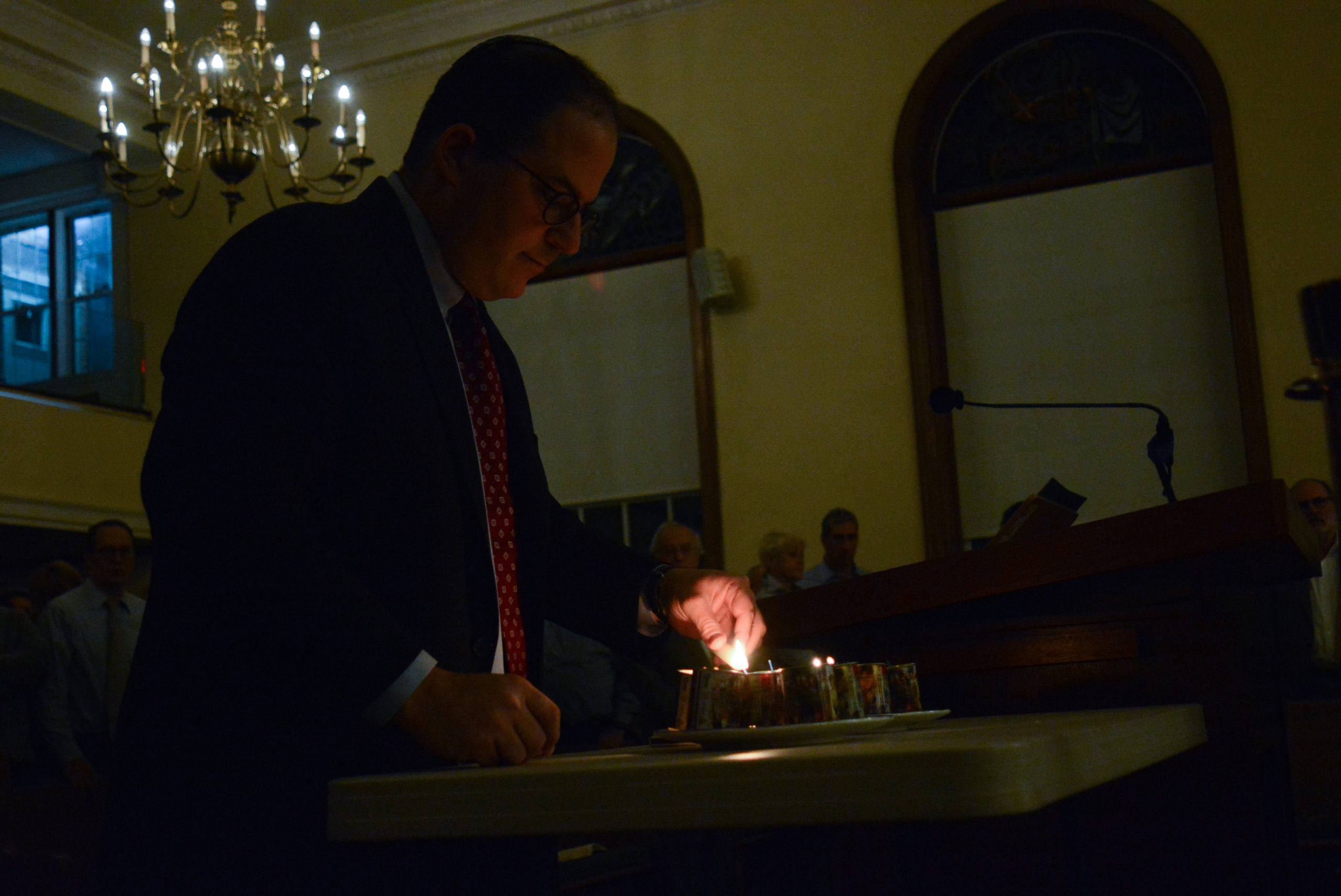Anti-Jewish incidents spiked by more than a third in 2017 from 2016 to drive up hate crimes 17.2 percent overall, FBI data released on Tuesday shows, with experts pointing to increased rhetoric, extremism and poor leadership as key factors.
Overall, reported hate crime incidents rose from 6,121 in 2016 to 7,175 last year, a considerable increase compared to the roughly five percent rise between 2015 and 2016 and 6.7 percent increase from 2014 to 2015.
Altogether, according to the data, the incidents against Jews rose from 684 to 938 – a 37 percent increase – from 2016 to 2017. Anti-religious crimes overall rose from 1,273 to 1,564, the data show, or a rise of 22.8 percent.
“This report provides further evidence that more must be done to address the divisive climate of hate in America,” Anti-Defamation League CEO and National Director Jonathan Greenblatt said. “That begins with leaders from all walks of life and all sectors of society forcefully condemning anti-Semitism, bigotry, and hate whenever it occurs.”
The release of data comes about two weeks after a mass shooting in the Tree of Life Synagogue in Pittsburgh, where 11 people were killed and six others wounded in the deadliest attack against the Jewish community in American history and unnerved many on the North Shore.
The FBI data seems to confirm the ADL’s reporting that anti-Semitic incidents are rising, although the numbers do differ.
The Anti-Defamation League found 1,986 anti-Semitic incidents occurring in 2017 – a 57 percent increase from the 1,267 incidents in 2016. This makes 2017 the second worst year on record since they began recording data in 1979, the group says.
Helen Turner, the director of youth education at the Holocaust Memorial and Tolerance Center of Nassau County, said she has found the spike in anti-semitic incidents “extremely worrying.”
But it also spurs her and the center to continue their work, she said, and underscores the necessity of educational programming like “Deconstructing Symbols of Hate” and facilitating “difficult conversations.”
“It’s very important to us that we are a strong voice saying that anti-semitism, racism and intolerance of any kind is simply not tolerated,” Turner said.
Asked about the increase in reported hate crimes, Turner said she believes it’s from “losing the middle ground,” some people – but not all – feeling safer to report incidents, and an increase of hate crimes in general.
“I think we’re living in a world of extremism,” Turner said.
Ron Hosko, a former FBI assistant director and security analyst for CBS News, told the network that while more law enforcement agencies participated in data collection, he suspects a significant amount of underreporting.
“I suspect there’s a huge gap here in what’s being unreported to the FBI, even though we’re seeing a rather substantial increase in the total number of crimes,” Hosko said.
Caryn Stepner, the chief of the Nassau County DA’s Hate Crimes Unit, said the unit was created in 2017 in response to a general rise of hate crimes in 2015 and 2016 to “aggressively enforce” current laws on hate crimes.
Stepner said that when the unit first started, they had about eight instances of hate crimes and currently they have no open cases. But, Stepner noted, they usually only get cases when an arrest is made and it rises to the level of a specified crime.
Among the cases were someone being arrested for spray-painting swastikas at Nassau Community College and a group of students painting one at Syosset High School, she said.
“I would call it ignorance,” Stepner said, noting that the students didn’t realize the gravity of the symbol until undergoing sensitivity training and speaking with a Holocaust survivor.
And while education can be helpful in cases like that, Stepner said it doesn’t often help the genuinely anti-Semitic.
“…People who are truly anti-Semitic, [I] don’t think there’s anything you can do to persuade,” Stepner said.
Azadeh Aalai, an assistant professor of psychology at Queensborough Community College and last year’s scholar in residence at the Kupferberg Holocaust Center, said that in periods of “uncertainty” instances of scapegoating tend to go up.
Aalai said that along with a lack of positive leadership, the rise of social media platforms like 4chan and Reddit have allowed individuals with ideas once on the fringe to get a large platform, unite, reinforce their ideas and become emboldened.
Far right ideas and anti-Semitism also appear to be on the rise globally, Aalai said.
But, Aalai noted, there is a silver lining.
“Despite the fact that social media and the Internet can be a hotbed for misinformation, you also have a place where there’s ‘hashtag’ advocacy,” Aalai said, adding that other groups can come together to help and are speaking against “some of the more hateful aspects of the administration.”



